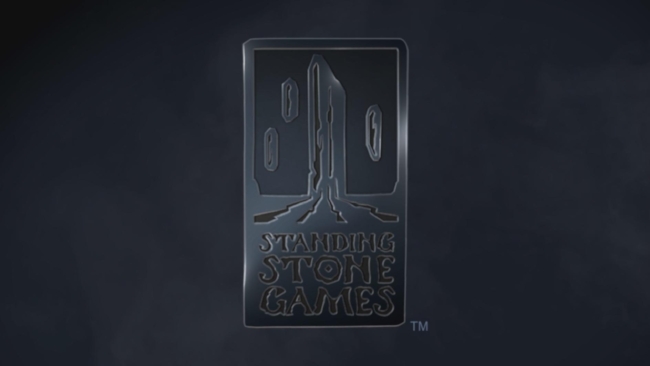Standing Stone Games and LOTRO
To date one of LOTRO’s greatest weaknesses has been the way it’s been run and marketed. There are other flaws but these have been fully discussed over the years, so I see no reason to revisit them. Considering the games pedigree, the nine-year-old MMO has never reached its full potential but that is a criticism that can be levelled at many entries in this genre. In recent years LOTRO has limped forward, hobbled by an ever-diminishing development team and starved of resources by its corporate master. Yet because of the dedication of a core group of fans the game generates sufficient revenue to keep it from folding. Thus, despite continued predictions of closure from armchair experts such as myself, LOTRO endures, while other titles have sailed into the West.
Yesterday it was announced that Turbine would no longer be overseeing the development of LOTRO. In fact, the core team that has running both LOTRO and DDO over recent years, has formed their own new independent game studio called Standing Stone Games and have acquired both properties. Furthermore, Standing Stone Games have partnered with Daybreak Game Company who will provide global publishing services. Sundry press releases were made by both parties and a FAQ was posted to reassure existing customers of both MMOs. The separation process from Turbine and Warner Bros. Interactive Entertainment is ongoing but already LOTRO has been patched to add the Standing Stone Games logo.
Now whether you are a die-hard LOTRO fan or a casually interested bystander (I’m somewhere between these two positions), this change raises a lot of questions. As ever a lot of the answers will only be known to those at the top of each respective company and will not be addressed publicly. However, common sense and a degree of deductive reasoning will probably furnish some answers. For example, it is reasonable to assume that the licensing issue has been addressed and that LOTRO has gained an extension and will not close in 2017. Middle Earth Enterprises may well have become more relaxed about licensing per se since the recent death of Saul Zaentz. I certainly can’t see any company embarking on such a transfer of ownership for a product that had less than a year to live.
Warner Bros. Interactive Entertainment obviously didn’t see the need to hang on to LOTRO, which is hardly surprising as they’ve done precious little with the IP since they acquired Turbine in 2012. At the time, many LOTRO players envisaged a sizeable capital injection and an increase in game development but it never really happened. Warner’s were more than likely just acquiring studios and assets for licenses and patents. So, Standing Stone Games proposition was probably viewed as expedient and convenient. However, the most intriguing aspect of this transfer of ownership is the involvement of Daybreak Game Company. Their acquisition of SOE in early 2015 was surprise and their management of several online titles has been chequered to say the least. Exactly what impact (if any) will they have upon LOTRO?
As a publisher of an online game DGC will theoretically be responsible for things such as account systems, support services and server infrastructure. However, from what we’ve learned already it would appear that a lot of the existing facilities for LOTRO are to be maintained. However, there is the issue of the Turbine Store which no doubt will be quickly converted to reflect DGCs branding. Can we expect to see a change in the LOTROs monetisation policy? It’s very dependent upon Standing Stone Games relationship with Daybreak Game Company. As a new indie studio where did SSG get its funding. Is DGC bankrolling the development team? Or did they provide the capital for the game license which I’m sure did cost pocket change. If you follow the money you usually find out who calls the shots and that will surely impact upon the direction that LOTRO takes.
As ever with a change of this kind, speculation seems to be at both ends of the possible spectrum. LOTRO according to some is to enjoy some sort of renaissance and have a wealth of new content, or alternatively decline into lock box, money grab hell and be dead within six months. Realistically the truth is more than likely somewhere in the middle. Standing Stone Games is now in a better position to focus exclusively for content creation for both LOTRO and DDO without losing staff to other projects. If this transition is handled well then LOTRO can still deliver a modest and steady stream of revenue. DGC may well be pursuing a different endgame that is beyond LOTRO. Perhaps they have an eye on a longer-term relationship with SSG and future products. As ever only time will tell but in the meantime, it is wise to remain cautious. Perhaps this unseen news may even encourage some players to return to LOTRO. Either way my advice is to live in the present and enjoy LOTRO while you can.

